Uncovering a mysterious connection between the families of Michigan health faculty members Kate Bauer and Irene Butter.
Written by Isaac Vineburg
The secret came from a line in a family letter from 1943: “From tomorrow, [Mother] he will stay with John Hasenberg where he will be in good hands. This sparked a decades-long search for Kate Bauer, associate professor of Nutritional Sciences at the University of Michigan School of Public Health, and her father, Jim Bauer.
The family letter was written by Bauer’s great-uncle, Alfred Kahn, the night before his family was deported to Theresienstadt, a Nazi concentration camp and ghetto that housed European Jews and served as distribution center for deportation to the larger Nazi concentration camps. killing centers. The family lived in Amsterdam after fleeing Germany once the Nazis came to power.
“This is a special vehicle for veterans, which, as we were told, is considered a privilege,” the letter is read. “Unfortunately, this does not extend to our dear mother […] Men only, [wives]
and children under the age of 14.”
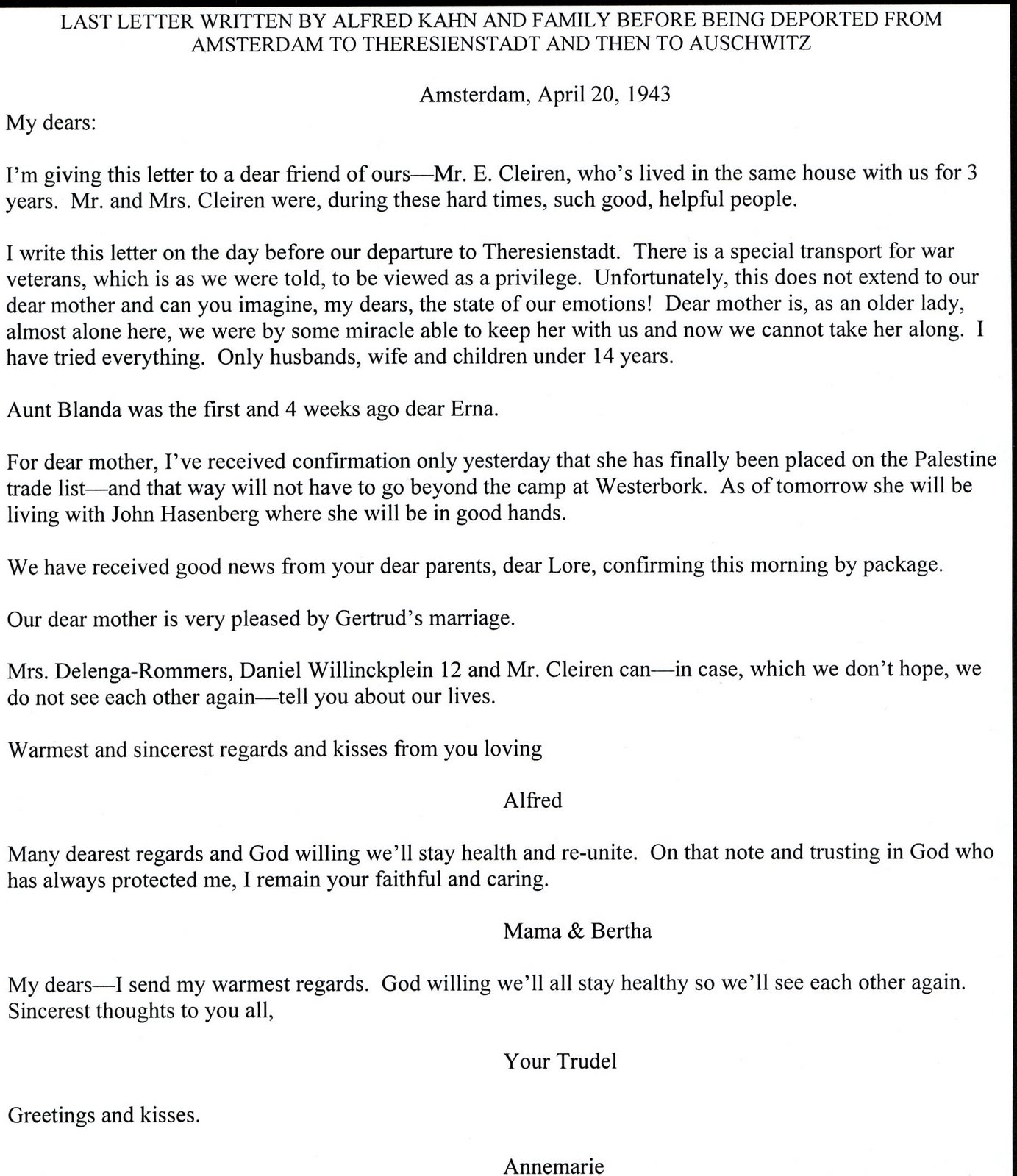
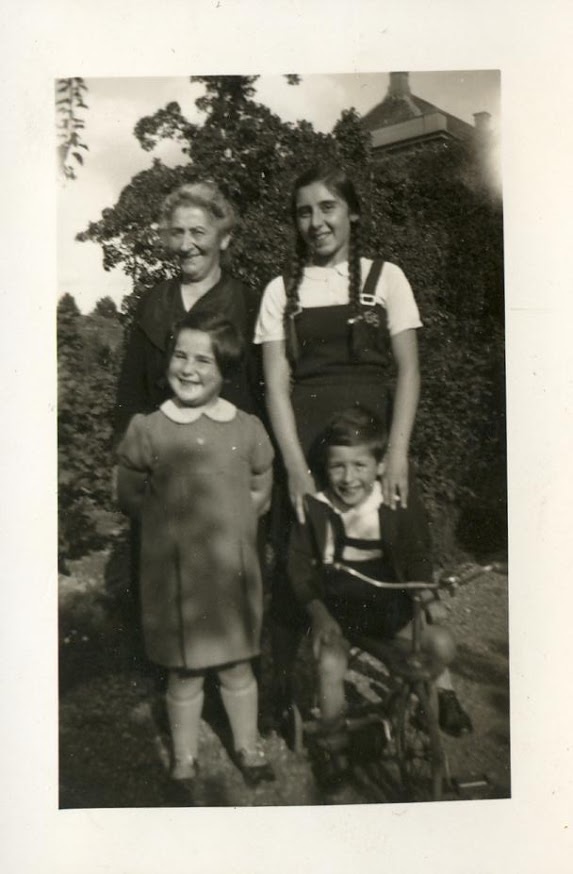
Enter Irene (Hasenberg) Butter, a Holocaust survivor and distinguished professor of Health Management and Public Health Policy at Michigan. Born in Berlin in 1930 to John and Gertrude Hasenberg, Irene’s family fled Germany to Amsterdam after a strict anti-Jewish law caused her father to lose his job. He had a happy childhood in Amsterdam, living in the same place as the Kahns and another German family in exile, the Franks and their daughter Anne.
After the Nazis invaded Holland in 1940, Irene was expelled from school. Jews were banned from public places and public transportation, limited to certain hours for shopping, their bicycles were confiscated, and finally they had to wear a yellow Star patch. David in their clothes. The Hasenberg family was deported to Westerbork, a transit camp in the German-occupied Netherlands, before being sent to the Bergen-Belsen concentration camp. There was a brief meeting with Anne Frank, who was in a section near the camp.
In 1945, Irene, her sister, mother and father were released from Bergen-Belsen as part of a foreign exchange, and she eventually made her way to the United States. He attended Queen’s College in New York. From there, she went on to earn a PhD in Economics at Duke University, where she met her future husband, Charles (Charlie) Butter. Their first job brought them to the University of Michigan in Ann Arbor, where Irene taught in the Department of Health Management and Policy at Michigan Public Health from 1962 to 1996.
Amazing connection
Fast forward to 2024: Kate Bauer, a Michigan Public Health professor, told her father about a Holocaust survivor who spoke at her children’s schools in Ann Arbor. Interested in learning more—and the possible connection between these Amsterdam families—Jim Bauer researched Butter’s story further, and discovered that Butter’s maiden name was as Hasenberg, and that his father was John Hasenberg, the man who adopted his grandmother. Bertha Kahn all those years ago.
“My dad was like, ‘Holy cow! Could this be the person I’ve been looking for?’” Bauer said.
So, Bauer contacted Butter, a colleague at Michigan Public Health.
What are the chances that it is the right family, or that he remembers an old woman named Bertha living with his family?” Bauer said.
But Butter remembered. He responded immediately, saying: “My brother and I loved Oma Bertha, especially since we had to leave our Oma.” [grandma] in Berlin. He slept in our dining room.”
In addition to Oma Bertha, Butter said: “My brother and I had Hans, Alfred’s son, as a classmate when we were children.” He even produced a photo from the early 1940s with his son and the Kahn family, Bauer’s cousins.
“Surprisingly, we found a family and a woman who had taken care of my grandfather, Oma Bertha,” Bauer said. “Irene remembered when she welcomed him into her family and home during a very difficult time; he remembered our cousins. And she is alive! He is 93 years old and has the clearest memory ever. Then add to this that he was a teacher at the School of Public Health, and now he is a teacher at the same school. ”
“Two Michigan Public Health professors from completely different generations learn after 80 years that their families lived together during World War II. It’s something I will never forget. ” – Kate Bauer
Butter Legacy
Butter’s impact on the School of Public Health and the University of Michigan cannot be overstated. In 1990, Butter established the University of Michigan’s Wallenberg Medal and Lecture, an event honoring Raoul Wallenberg, a University of Michigan graduate and Swedish scholar who saved tens of thousands of Jews during the Holocaust.
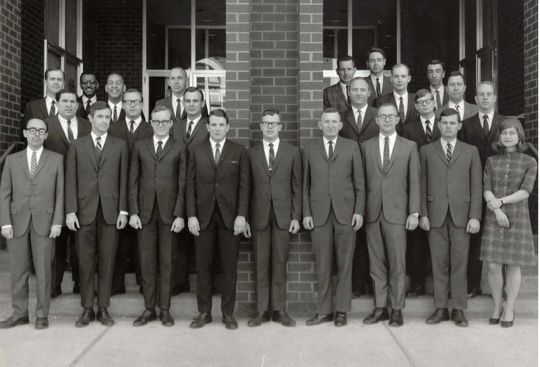
“I always felt the need to do something like this to accept the gift of being a Holocaust survivor,” Butter said in an interview with the UM Alumni Association.
To this day, the Wallenberg Award is given to philanthropists whose work exemplifies the human values exemplified by Wallenberg.
Without Butter continuing to teach students about the Holocaust, the relationship between the Kahn/Bauer and Hasenberg/Butter families would not have happened, Bauer said. Butter actively speaks in schools to educate young people about the Holocaust and it was through this activity and engagement that connections were made with the Bauers.
Butter also founded Zeitouna (“Olive Tree” in Arabic), an Arab-Jewish women’s discussion group based in Ann Arbor and made up of six Jewish and six Palestinian women, who spent years more than 20 meet twice a month. The team’s motto is “refusal to be enemies.” The bonds formed among women have allowed them to remain committed to each other, especially in times of conflict in the Middle East.
Bringing families together
Earlier this year, Bauer’s parents flew in from New York, and along with Bauer and Kahn, who were video-conferencing from Germany, met with Butter at Bauer’s home in Ann Arbor, revealing the secret of decades and safe family reunification- in an unimaginable time of panic.
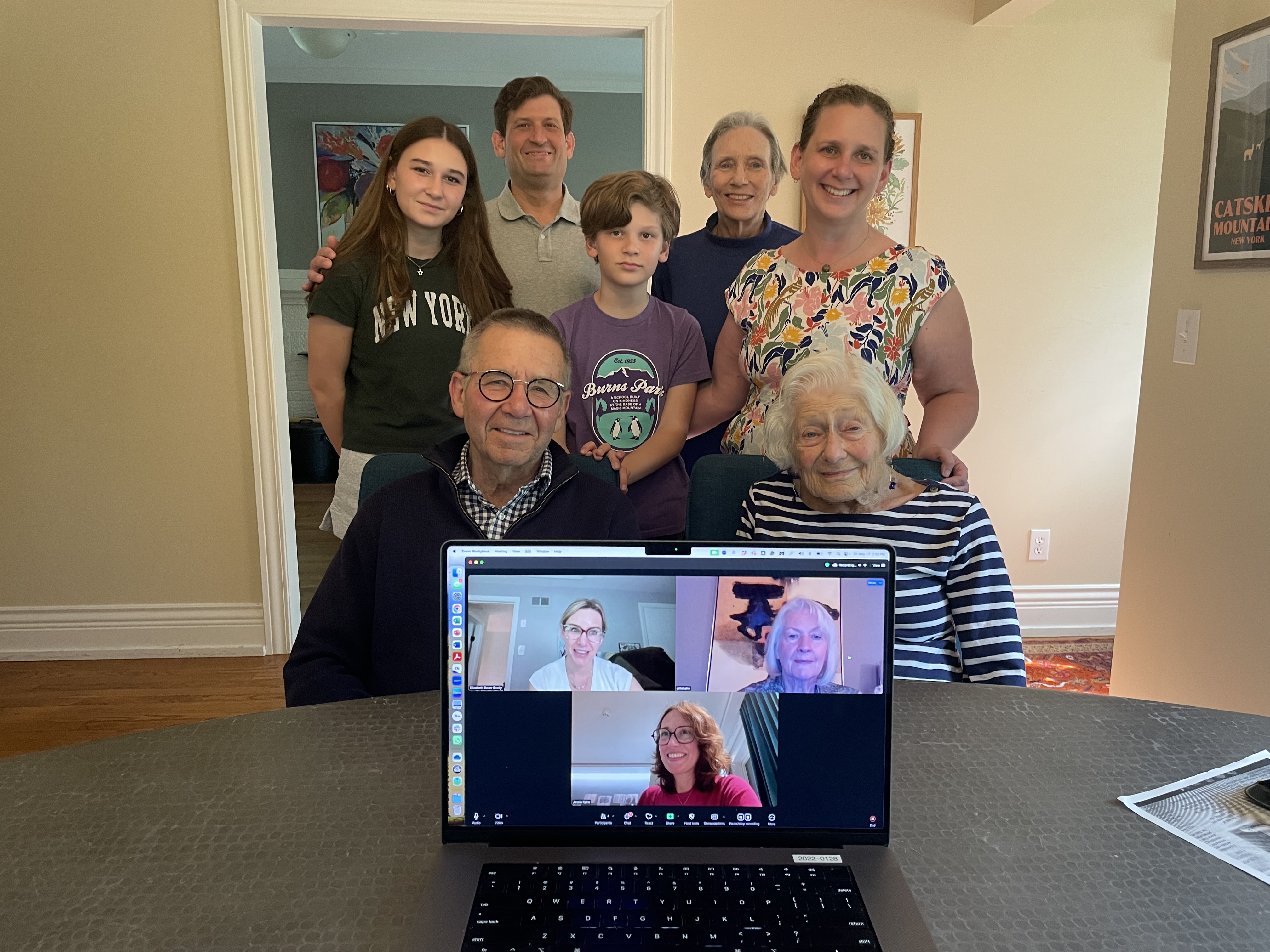
Bauer says: “Irene was able to talk a lot about our family and their good times in Amsterdam before the Nazis invaded.” “He is also incredibly kind, considerate and intelligent. She was excited to hear about my work and what is happening at the School of Public Health now. ”
“Two Michigan Public Health professors of completely different generations learn after 80 years that their families lived together during World War II,” Bauer said. It is something I will never forget.
To learn more about Irene Butter, read her memoir, “From Holocaust to Hope: Shores Beyond Shores,” written by Kris Holloway, MPH ’96, and John D. Bidwell.
PostScript
Alfred Kahn and his family were deported from Amsterdam to Theresienstadt on April 21, 1943. In September 1943, they were deported to Auschwitz, where they were killed.
Shortly after Bertha Kahn went to live with Irene Butter’s family in Amsterdam, she was arrested and eventually deported. Sobiborwhere he was killed.
#Family #Massacre #Mystery #Unites #Public #Health #Professors #News #University #Michigan #School #Public #Health
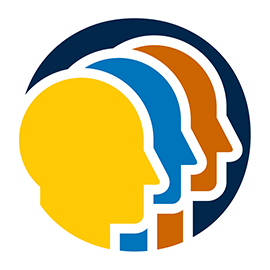 Looking for more news and popular public health topics? Subscribe to the Population Healthy newsletter and listen to the Population Healthy podcast.
Looking for more news and popular public health topics? Subscribe to the Population Healthy newsletter and listen to the Population Healthy podcast.